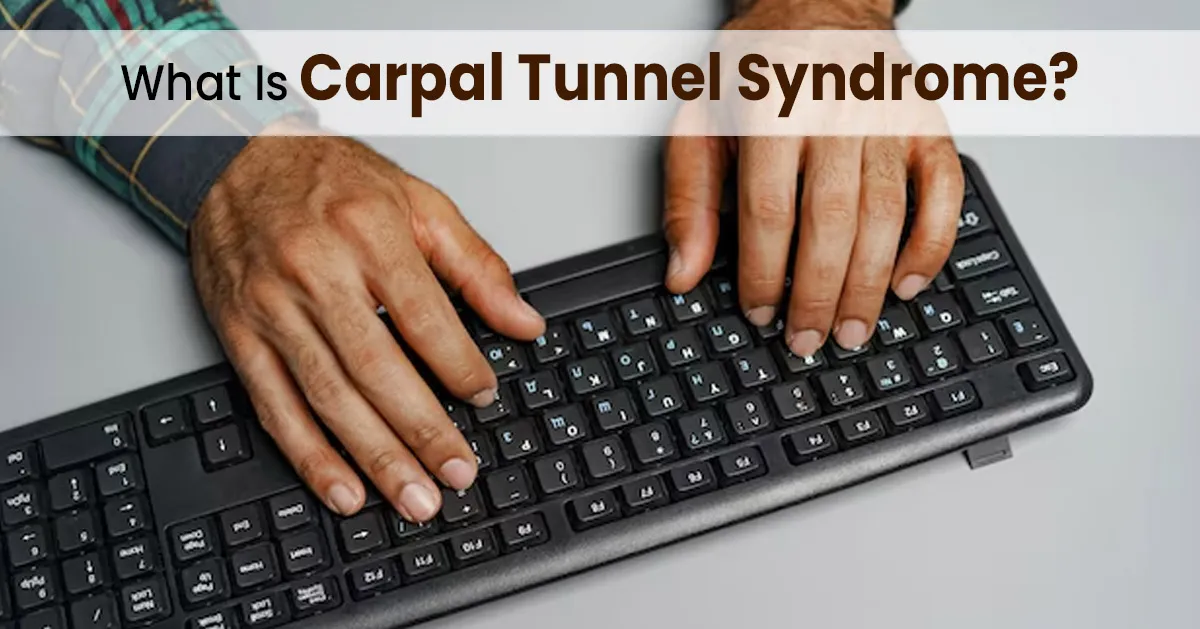
You’re halfway through a workday, typing emails, clicking through spreadsheets, and suddenly your fingers feel tingly or weak. Maybe your wrist aches or your thumb goes numb. You shake it off, blaming too much screen time. But what if your mouse or keyboard is silently damaging your nerves? Meet carpal tunnel syndrome (CTS). It is a painful condition caused by compressed nerves in the wrist, often linked to poor desk habits. Orthopaedists warn that improper mouse use is a major culprit, and ignoring early signs can lead to permanent damage or even surgery. Read ahead to know how your keyboards and working desk might be harming you, how to spot CTS early, and simple fixes to protect your hands.
Table of Content:-
What Is Carpal Tunnel Syndrome?
View this post on Instagram
Carpal tunnel syndrome occurs when the median nerve (which controls hand sensations and movements) gets squeezed at the wrist. This compression causes numbness, tingling, or weakness in the thumb, index, and middle fingers. Dr Anuj Kumar Kadian, Orthopedic Surgeon, Newlife Multispeciality Hospital and Trauma Centre, Gurugram, explains: “Repetitive strain from poor mouse or keyboard posture is a top cause of CTS. The longer you ignore it, the higher the risk of irreversible nerve damage.”
How Your Mouse Habits Trigger CTS
Using a mouse incorrectly stresses your wrist. Dr Kadian highlights these risky habits:
- Wrist Bending: Keeping your wrist arched upward or downward while clicking.
- No Elbow Support: Hovering your arm without resting the elbow.
- High-Force Clicking: Gripping the mouse too tightly.
- No Breaks: Typing for hours without stretching.
“Your wrist should stay straight, not bent while working. Even small adjustments can prevent big problems,” he adds.
ALSO READ: Does Working Night Shift Cause Hair Fall? Doctor Details How Human Body Is Linked With Sun
Early Signs of Carpal Tunnel Syndrome![Carpal Tunnel Syndrome signs 3 (59)]()
Don’t ignore these red flags:
- Numbness or tingling in fingers (especially at night).
- Weak grip (e.g., dropping objects frequently).
- Burning pain radiating from wrist to forearm.
- Swollen feeling in fingers, even without swelling.
- Daily numbness means it’s time to see a doctor, warns Dr Kadian.
Simple Fixes to Prevent CTS
Dr Kadian’s tips to protect your wrists:
- Adjust Your Mouse: Keep it at elbow height; your wrist should stay flat, not bent.
- Use an Armrest: Anchor your elbow to reduce shoulder and wrist strain.
- Stretch Every 30 Minutes like open/close fists 10 times. Gently stretch your fingers backwards for 10 seconds.
- Loosen Your Grip: Opt for an ergonomic mouse with lighter clicks.
What Research Says
A 2023 study in the Journal of Occupational Health tracked 500 office workers. It found:
- 40% developed wrist pain from poor mouse posture.
- 25% had early CTS symptoms within 6 months of bad habits.
- Workers who used elbow supports and took breaks cut their CTS risk by 65%.
ALSO READ: Can You Regrow Hair From Traction Alopecia? Here Is What An Expert Has To Say
Carpal Tunnel Syndrome Treatment![Carpal Tunnel Syndrome 2 - 2025-04-14T150120.017]()
- In the early stage, wear a wrist splint at night and apply ice to reduce swelling.
- Moderate CTS is also advised as physiotherapy strengthen wrist muscles.
- Cortisone injections to ease inflammation.
- In severe cases, surgery to relieve nerve pressure (if numbness persists for months).
“Surgery is avoidable for 90% of patients if they act early,” says Dr. Kadian.
Conclusion
That tingling in your fingers isn't just fatigue, it's your body sounding the alarm. Carpal tunnel syndrome creeps up silently, but the solution is in your hands (literally). By making simple tweaks today, you're protecting your ability to work pain-free for years to come. Your mouse shouldn't control your health. Take control now, before temporary numbness becomes permanent damage.
Also watch this video
How we keep this article up to date:
We work with experts and keep a close eye on the latest in health and wellness. Whenever there is a new research or helpful information, we update our articles with accurate and useful advice.
Current Version
-1744623684360.jpg)
